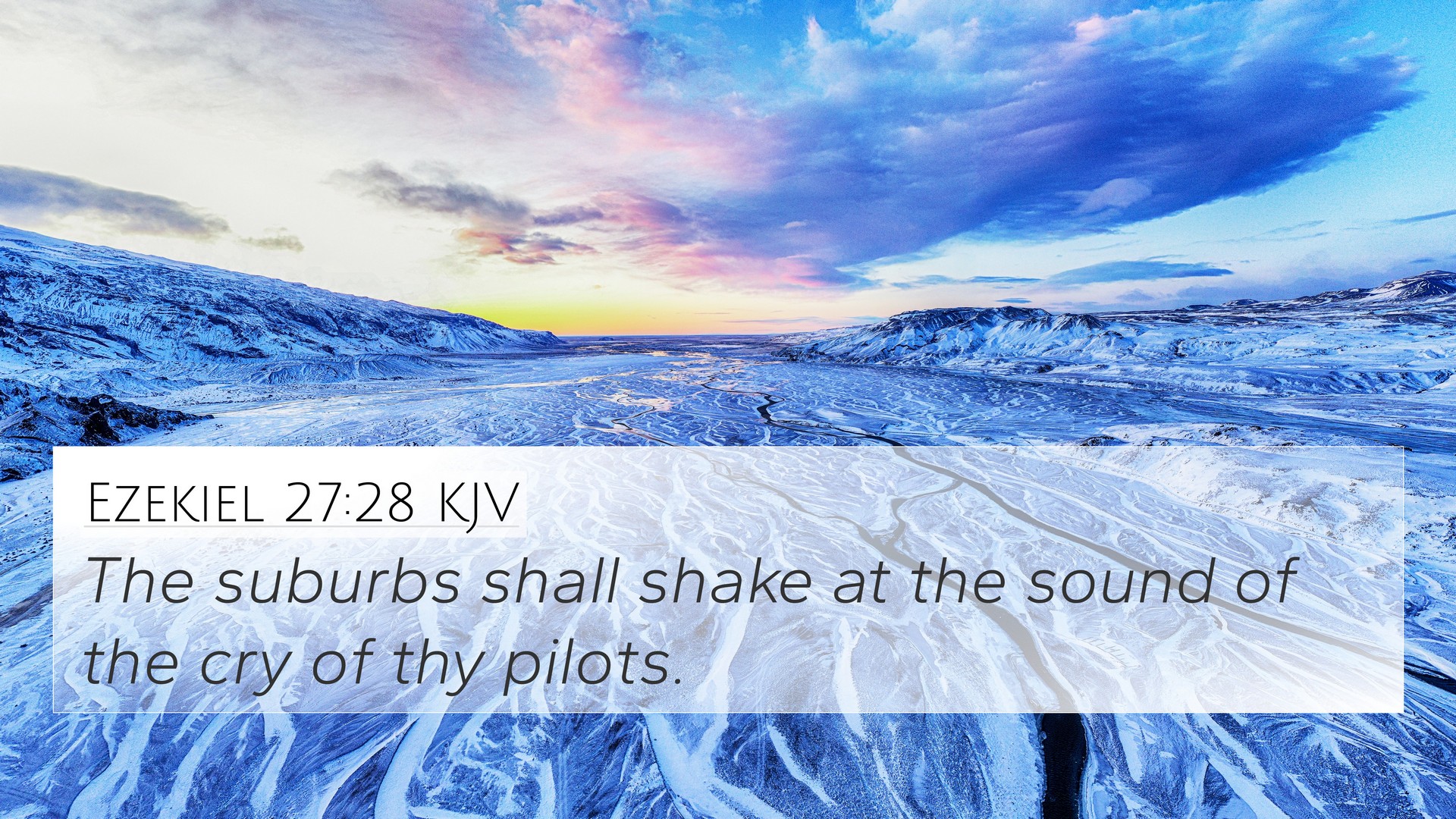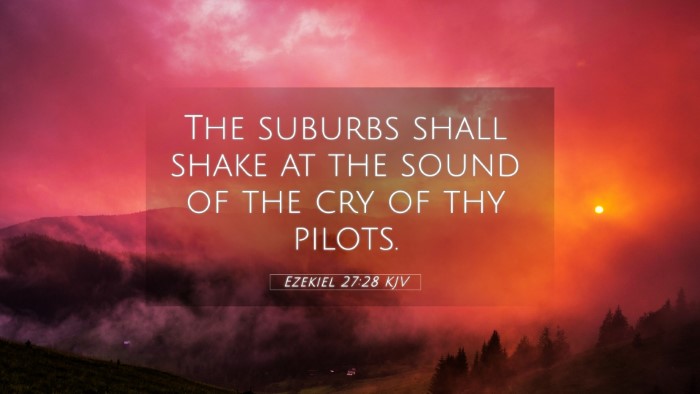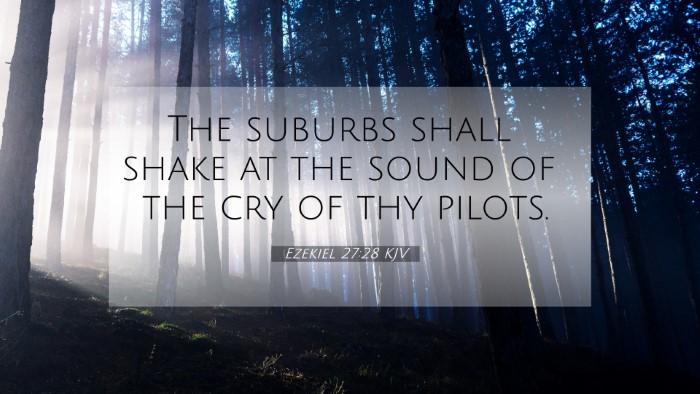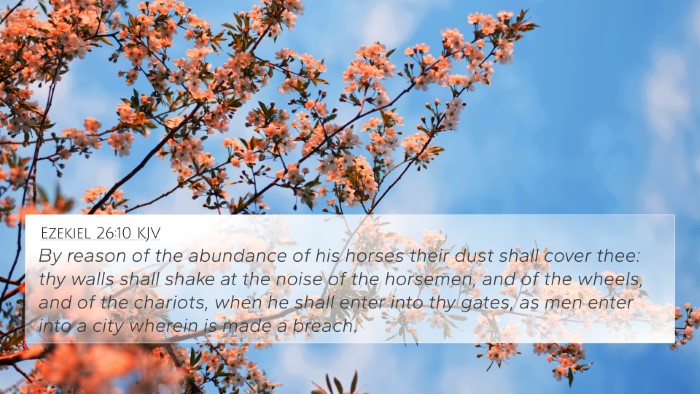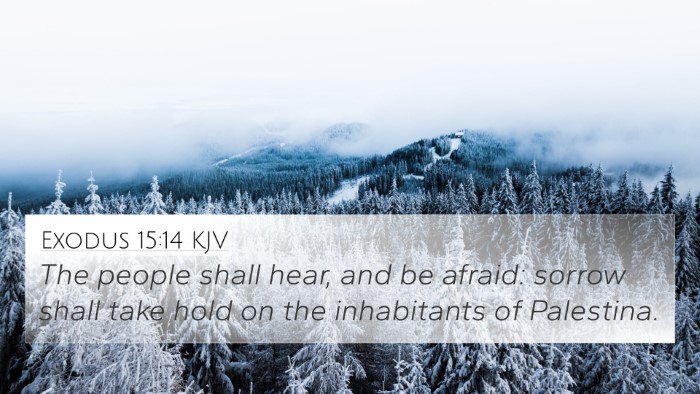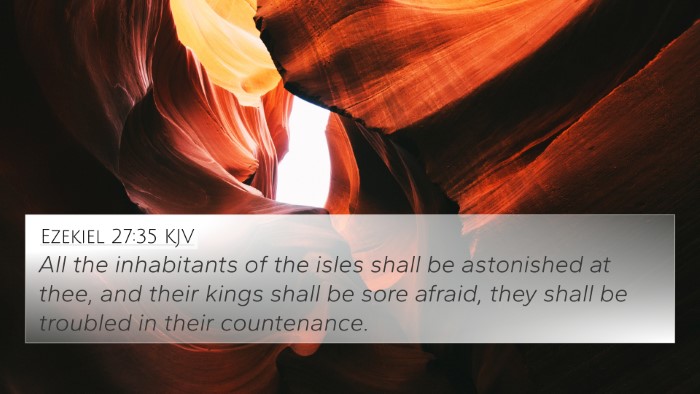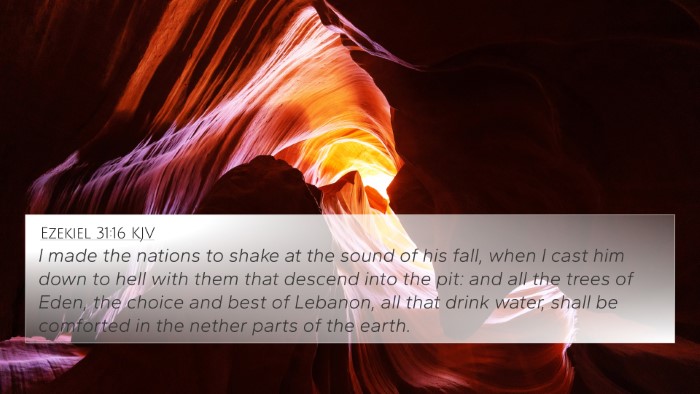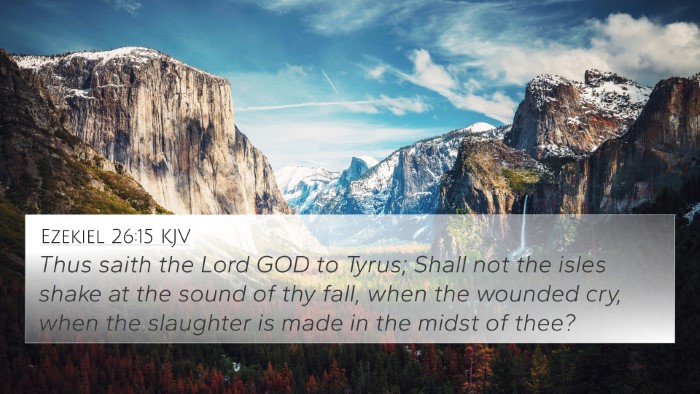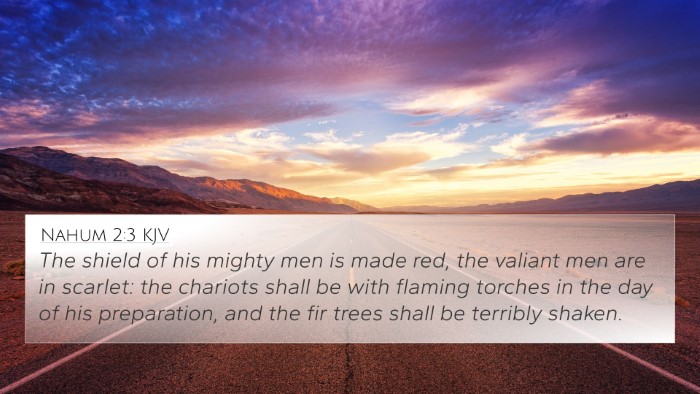Understanding Ezekiel 27:28
Ezekiel 27:28 states: "The report of your ships shall be shaken at the sound of the cry of your pilots." This verse is a part of a larger oracle concerning the destruction of Tyre, a prominent city known for its commerce and trade. The imagery used here reflects the chaos and fear that comes with the demise of a powerful trading city.
This verse’s significance goes beyond its immediate context, offering rich thematic connections with various other Bible verses. Below, we explore insights derived from esteemed public domain commentaries such as those by Matthew Henry, Albert Barnes, and Adam Clarke, as well as the interconnectedness with other scriptures.
Commentary Insights
-
Matthew Henry's Commentary:
Henry elaborates on the impending desolation of Tyre, emphasizing the judgment that comes as a result of pride and reliance on commerce over faith in God. The "cry of your pilots" signifies not just physical distress but also the spiritual state of the city, illustrating a broader warning against cultural and material excess.
-
Albert Barnes' Notes:
Barnes notes that the reaction of the pilots, who are laden with distress and fear, symbolizes the loss of control in economic and maritime endeavors that once thrived in Tyre. He draws parallels with the cries of despair heard throughout scripture when nations face divine retribution (see Lamentations 2:10).
-
Adam Clarke's Commentary:
Clarke highlights the metaphor of the ships, representing Tyrian merchants. The shaking of their ships signifies not only the physical tremor from the destruction of the city but also the moral and spiritual upheaval caused by abandoning God’s principles in pursuit of worldly gain.
Thematic Cross-References
In exploring the connections of Ezekiel 27:28 with other scripture, we see a rich tapestry of themes including judgment, commerce, and divine sovereignty. Here are several relevant cross-references:
- Isaiah 23:1 - Discusses the destruction of Tyre, mirroring the trade implications addressed in Ezekiel.
- Revelation 18:17-19 - A vivid description of the downfall of Babylon, paralleling the commercial ruin depicted in Ezekiel.
- Jeremiah 47:4 - Prophecy against Philistia highlights divine judgment on nations for their pride.
- Lamentations 2:10 - Illustrates the distress of leaders as they face the fallout of Jerusalem’s destruction, akin to the merchants' reaction in Tyre.
- Psalms 48:4-6 - Reflects the terror experienced by nations when God's judgment occurs.
- Ezekiel 26:15-17 - Addresses the reaction of the surrounding nations to Tyre's downfall, emphasizing the economic impact.
- James 5:1-3 - A New Testament warning against materialism resonates with the themes found in Ezekiel's prophecy.
- Amos 1:9 - Prophetically critiques the violence and greed of Tyre, related to divine justice.
- Matthew 6:19-21 - Encourages believers to store treasures in heaven rather than on earth, countering Tyrian materialism.
- 1 John 2:15-17 - Warns against loving the world, a moral failure evident in Tyre's fall.
Linking Bible Scriptures
This analysis exemplifies the connections between Bible verses and the thematic Bible verse connections seen throughout scripture. By cross-referencing, we identify how verses interact and enhance our understanding of divine justice, the transient nature of worldly wealth, and the consequences of idolatry.
Tools for Bible cross-referencing such as a Bible concordance or a Bible cross-reference guide enable deeper study, revealing the intricate linking Bible scriptures. As users explore Bible reference resources, they’ll learn how to perform a cross-reference Bible study to uncover harmonies across biblical texts.
Practical Applications
For readers aiming to understand how to interpret themes through cross-referencing Biblical texts, this approach provides a pathway to discovering the integrity and inter-Biblical dialogue that speaks to both historical contexts and contemporary applications.
Conclusion
Ezekiel 27:28, therefore, serves not only as a prophetic warning to Tyre but also as a profound lesson echoed throughout the Bible. As we meditate on these verses, we gain insight into God's sovereignty and the fate of those who forsake Him for the allure of materialism. Using comprehensive tools for cross-referencing, believers can effectively engage with the themes of Scripture.
